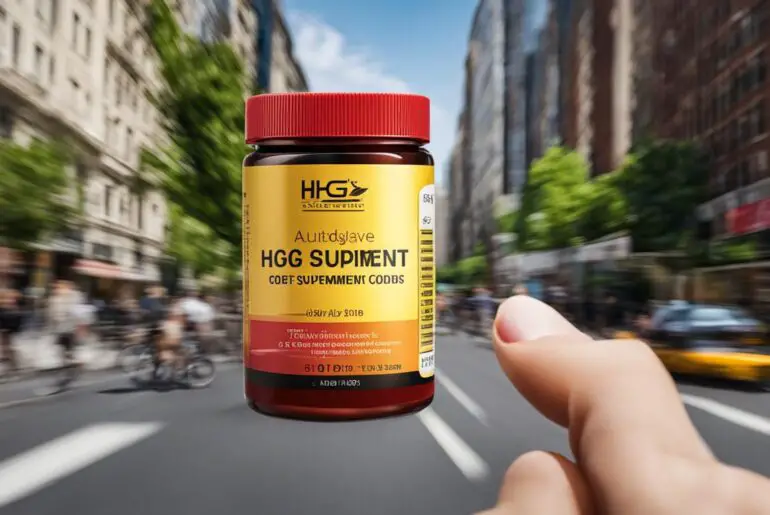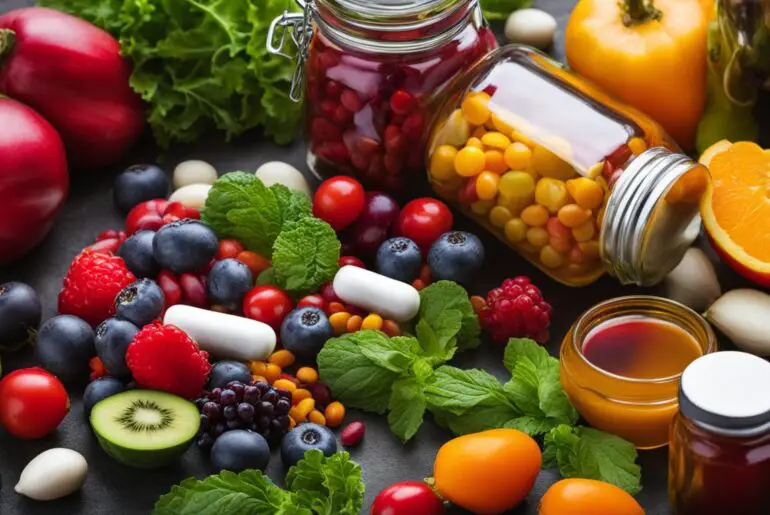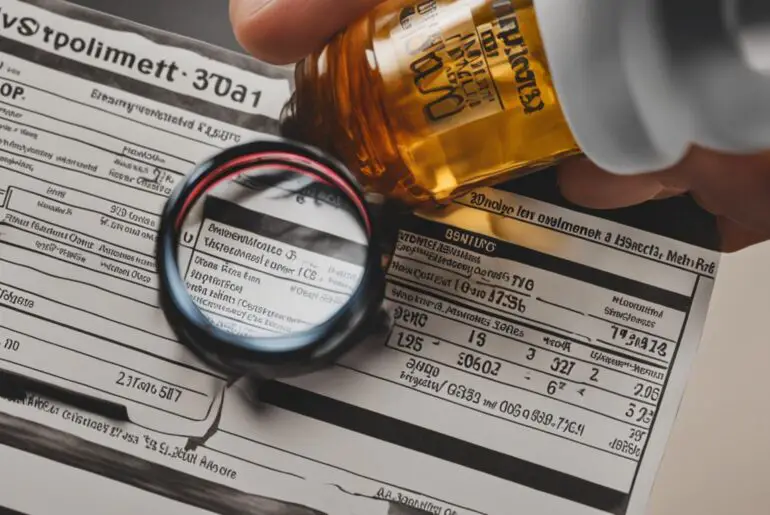Did you know that the HCG diet, a weight loss protocol that combines the use of HCG hormone supplements with an extremely low-calorie diet, has gained popularity among beginners looking for quick results? However, what may seem like a promising solution for shedding those extra pounds comes with its own set of controversies and concerns.
Before diving into the world of HCG diet supplements, it’s important to understand the potential risks and limitations associated with this weight loss approach. In this article, I will explore the HCG diet, its effectiveness, safety, and provide alternatives for beginners seeking sustainable weight loss.
Key Takeaways:
- The HCG diet combines the use of HCG hormone supplements with an extremely low-calorie diet.
- The FDA has not approved HCG for weight loss, and there is no substantial evidence supporting its effectiveness.
- Consult with a healthcare provider before starting any weight loss plan, especially one as extreme as the HCG diet.
- There are safer and more sustainable alternatives to the HCG diet for healthy weight loss.
- Prioritize long-term lifestyle changes rather than quick fixes for weight loss success.
Understanding the HCG Hormone
The HCG hormone, also known as human chorionic gonadotropin, is produced during pregnancy and plays a crucial role in supporting the healthy growth of the fetus. However, in the context of the HCG diet, synthetic HCG hormone supplements are utilized with the aim of aiding weight loss.
Contrary to claims made by proponents of the HCG diet, there is no scientific evidence to support the notion that the HCG hormone itself directly leads to weight loss. Instead, studies have shown that any weight loss achieved while following the HCG diet is primarily due to the extreme calorie restriction imposed rather than the actions of the HCG hormone.
“There is no scientific evidence to support the notion that the HCG hormone itself directly leads to weight loss.”
While the HCG hormone may have important functions during pregnancy, its role in weight loss remains unsubstantiated. It is critical to approach weight loss with evidence-based strategies that prioritize overall health and well-being.
The Phases of the HCG Diet

The HCG diet consists of three distinct phases that individuals follow to achieve their weight loss goals: the loading phase, the weight loss phase, and the maintenance phase.
The Loading Phase
The first phase of the HCG diet is the loading phase. During this phase, individuals consume high-fat, high-calorie foods to build up their fat stores in preparation for the calorie-restricted weight loss phase. It is recommended to eat foods like avocados, nuts, seeds, and oils during this phase. The loading phase typically lasts for two days.
The Weight Loss Phase
After the loading phase, individuals transition to the weight loss phase, which involves a calorie-restricted diet of 500-800 calories per day. This phase typically lasts for three to six weeks, depending on individual goals and progress. Along with the calorie restriction, individuals continue taking HCG hormone supplements to support the weight loss process.
During the weight loss phase, individuals are advised to focus on consuming lean proteins, such as chicken, turkey, and fish, along with low-calorie vegetables like spinach, lettuce, and cucumbers. Fruits like apples, strawberries, and oranges, in moderation, can also be included. It is essential to avoid high-calorie and high-sugar foods, oily and fried items, and starchy carbohydrates. Here’s an example of a sample daily menu:
| Meal | Food | Portion Size | Calories |
|---|---|---|---|
| Breakfast | Egg white omelet | 3 egg whites | 51 calories |
| Lunch | Grilled chicken breast | 100 grams | 165 calories |
| Snack | Apple | 1 medium-sized | 52 calories |
| Dinner | Grilled white fish | 100 grams | 100 calories |
| Snack | Strawberries | 1 cup | 49 calories |
The Maintenance Phase
Once the desired weight loss is achieved, individuals enter the maintenance phase. The maintenance phase gradually increases calorie intake while discontinuing HCG hormone supplementation. This phase typically lasts for three weeks, allowing the body to adjust to the new weight. During this phase, individuals slowly reintroduce additional healthy food choices into their diet while still avoiding high-fat and high-sugar foods. The goal of the maintenance phase is to stabilize weight and establish healthy eating habits for the long term.
It is important to note that the HCG diet’s extreme calorie restriction can be unsafe and may lead to nutrient deficiencies. It is crucial to consult with a healthcare professional before embarking on any weight loss plan, especially one as drastic as the HCG diet. Always prioritize your health and well-being above rapid weight loss.
Foods Allowed on the HCG Diet
When following the HCG diet during the weight loss phase, certain foods are permitted for consumption. These foods are carefully selected to provide essential nutrients while keeping calorie intake low. It is important to adhere to the approved food list to maximize results and maintain proper nutrition.
Lean Proteins
Lean proteins play a crucial role in the HCG diet as they provide essential amino acids and help maintain muscle mass. The following lean protein sources are allowed:
- Chicken
- Egg whites
- Fish
- Beef
- Bison
Approved Vegetables
To add variety and essential nutrients to the diet, a selection of approved vegetables can be included:
- Spinach
- Lettuce
- Celery
- Broccoli
- Tomatoes
Fruits
While fruits contain natural sugars, they are allowed in limited quantities to provide vitamins and antioxidants. The following fruits are permitted:
- Berries
- Citrus fruits
- Apples
Spices and Seasonings
Although the HCG diet limits many added fats and oils, spices and seasonings can be used to add flavor to meals. Consider incorporating the following spices and seasonings:
- Garlic
- Lemon juice
- Salt
- Pepper
It is important to note that high-calorie and high-sugar foods, dairy products, oils, and sweeteners should be avoided during the HCG diet to maintain the low-calorie intake and promote weight loss.
Foods Allowed on the HCG Diet
| Food Group | Examples |
|---|---|
| Lean Proteins | Chicken, egg whites, fish, beef, bison |
| Approved Vegetables | Spinach, lettuce, celery, broccoli, tomatoes |
| Fruits | Berries, citrus fruits, apples |
| Spices and Seasonings | Garlic, lemon juice, salt, pepper |
Foods to Avoid on the HCG Diet
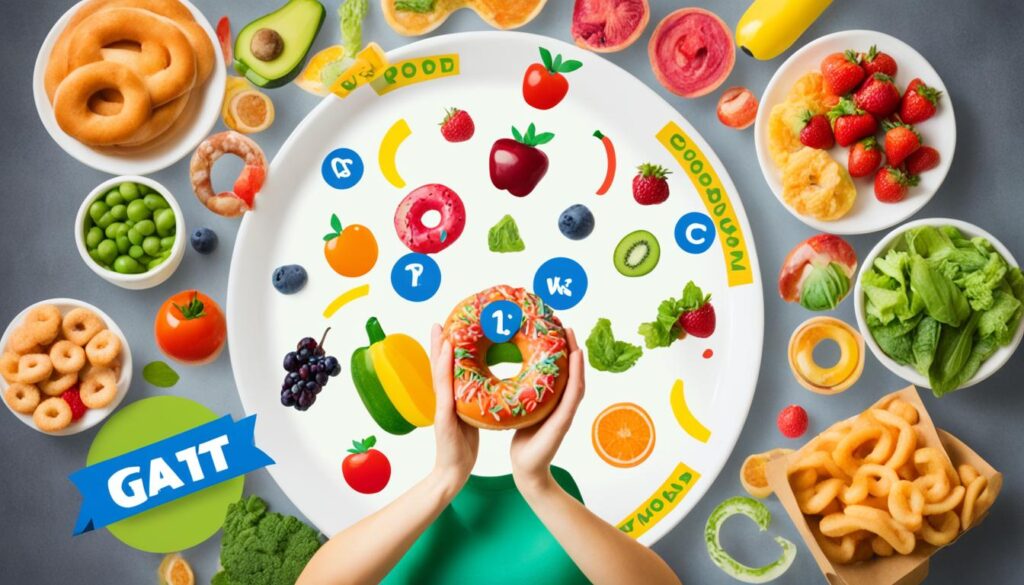
The HCG diet requires strict adherence to a list of foods that should be avoided. These foods are typically high in calories, carbohydrates, and fats, which can hinder the weight loss progress on the diet. By eliminating these foods from your diet, you can significantly reduce calorie intake, promoting faster weight loss results. Here are the main foods to avoid on the HCG diet:
- Dairy Products: Dairy products such as milk, cheese, and yogurt should be avoided on the HCG diet. These foods are high in calories and fat, which can slow down your weight loss journey.
- High-Calorie Foods: It is important to steer clear of high-calorie foods like sugary snacks, fried foods, and processed snacks. These foods can sabotage your weight loss efforts and provide little nutritional value.
- Oils and Dressings: Oils and dressings, including cooking oils, salad dressings, and mayonnaise, should be avoided on the HCG diet. These condiments are high in fat and can contribute to excess calorie intake.
- Sweets: Sweets such as candies, cookies, cakes, and ice cream should be completely avoided on the HCG diet. These sugary treats are high in calories and can derail your progress.
By eliminating these high-calorie foods, dairy products, oils, and sweets, you can optimize your weight loss potential on the HCG diet. It is crucial to strictly follow the diet guidelines to achieve the desired results and stay on track with your weight loss goals.
Safety and Effectiveness of the HCG Diet
The HCG diet is widely considered to be highly unsafe, unhealthy, and even illegal. The U.S. Food and Drug Administration (FDA) has issued a warning against the use of HCG products for weight loss, as they have not been proven effective and can lead to serious side effects.
Rapid weight loss achieved on the HCG diet is primarily attributed to the extreme calorie restriction rather than the HCG hormone itself. This drastic calorie reduction can result in nutrient deficiencies, muscle loss, and other health complications.
The FDA has warned against the use of HCG products for weight loss, as they are not proven effective and can have serious side effects.
It is crucial to consult with a healthcare professional before considering any weight loss plan, especially one as extreme as the HCG diet. Your healthcare provider will be able to assess your specific needs and provide guidance on safe and effective weight loss strategies.
The FDA Warning on HCG Diet Products
The FDA has expressed serious concerns regarding the safety and effectiveness of HCG diet products. In a public notification, the FDA states that over-the-counter HCG products are illegal and unproven for weight loss. These products are often marketed in various forms, including oral drops, pellets, and sprays.
Furthermore, the FDA advises consumers to avoid these HCG weight loss products as they may be dangerous. The agency does not endorse the usage of HCG for weight loss purposes due to the lack of substantial scientific evidence supporting its effectiveness or safety.
It is important to prioritize your well-being and follow evidence-based weight loss methods that are recommended by healthcare professionals.
Alternatives to the HCG Diet

While the HCG diet is often marketed as a quick and effective weight loss solution, there are safer and healthier alternatives available. These alternatives prioritize sustainable weight loss through balanced nutrition and regular exercise. By adopting these alternatives, individuals can achieve their weight loss goals without the risks associated with extreme dieting. Some healthy weight loss options to consider include:
- The Mediterranean Diet
- The DASH Diet
- Working with a Registered Dietitian
The Mediterranean diet is a well-known eating plan that focuses on whole, unprocessed foods such as fruits, vegetables, whole grains, lean proteins, and healthy fats like olive oil. This diet emphasizes the importance of balancing different food groups and incorporating physical activity into daily routines.
The DASH (Dietary Approaches to Stop Hypertension) diet is designed to lower blood pressure and promote overall health. It encourages consumption of fruits, vegetables, whole grains, lean proteins, and low-fat dairy products while limiting sodium, saturated fats, and added sugars.
Working with a registered dietitian offers personalized guidance and support. They can create a customized meal plan tailored to an individual’s unique nutritional needs, preferences, and goals. A dietitian can also provide education on portion control and offer strategies for long-term weight management.
By choosing these safer weight loss alternatives, individuals can adopt sustainable lifestyle changes that lead to lasting results. These options prioritize overall health, well-being, and the development of healthy habits rather than relying on quick fixes like the HCG diet.
Note: Always consult with a healthcare professional before starting any weight loss plan to ensure it is safe and appropriate for individual needs and medical conditions.
Potential Risks and Side Effects of the HCG Diet
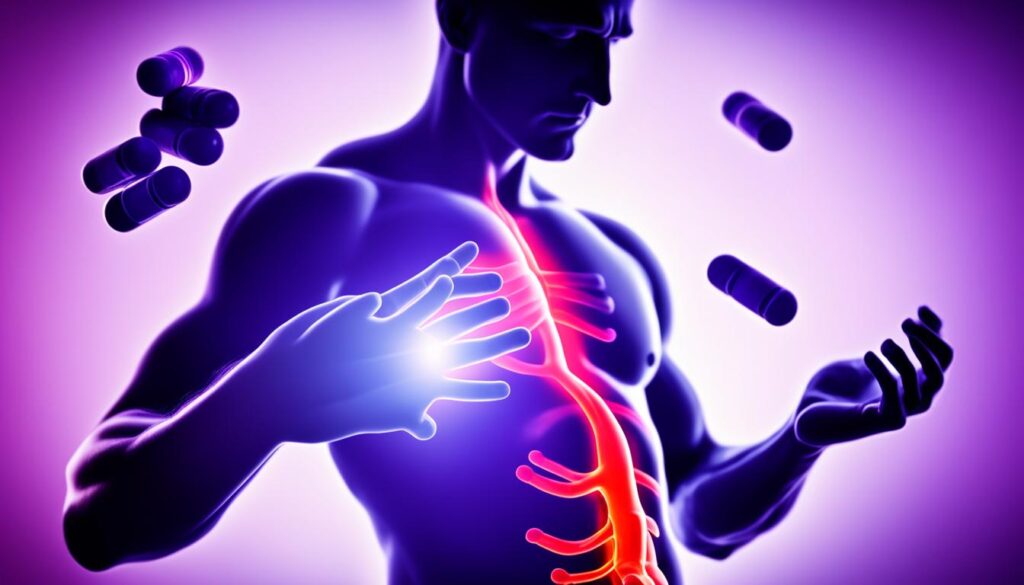
The HCG diet entails extreme calorie restriction, which brings along potential risks and side effects. It is crucial to understand the potential consequences before diving into this weight loss plan.
- Risks of HCG diet: The risks associated with the HCG diet include:
- Headaches: Many individuals on the HCG diet experience frequent headaches as a result of the severe calorie restriction.
- Fatigue: Due to the extremely low-calorie intake, fatigue is a common side effect of the HCG diet.
- Dizziness: Some people may experience dizziness and lightheadedness, particularly when transitioning to such a restricted diet.
- Nutrient deficiencies: The HCG diet’s limited food choices may lead to inadequate intake of essential nutrients, vitamins, and minerals, resulting in nutrient deficiencies.
Moreover, the HCG diet can also have a negative impact on one’s relationship with food. The extreme calorie restriction may lead to disordered eating patterns and weight cycling, which can be detrimental to both physical and mental health.
Furthermore, it is essential to exercise caution when considering over-the-counter HCG products. These products are not regulated by the FDA, and they may contain unknown ingredients or substances that can have unpredictable effects on the body.
Prioritizing overall health and well-being is of utmost importance when embarking on a weight loss journey. Consultation with a healthcare professional can provide valuable guidance and support to ensure the safety and effectiveness of any chosen weight loss plan.
Importance of Sustainable Weight Loss

Sustainable weight loss is crucial for long-term weight management. It involves making lifestyle changes that can be maintained over time, leading to lasting results. Instead of relying on quick fixes or extreme diets like the HCG diet, sustainable weight loss focuses on adopting healthy eating habits, engaging in regular physical activity, and taking a balanced approach to weight management.
By incorporating these principles into your everyday life, you can achieve weight loss goals in a healthy and sustainable way. It’s important to remember that sustainable weight loss is not just about shedding pounds; it’s about improving overall health and well-being.
The Pitfalls of the HCG Diet
The HCG diet, with its extreme calorie restriction and reliance on hormone supplements, is not a sustainable approach to weight loss. Although it may yield rapid results initially, it is not a sustainable or healthy long-term solution.
The HCG diet requires individuals to follow an extremely low-calorie diet, typically ranging from 500 to 800 calories per day. This drastic calorie restriction can result in nutrient deficiencies, muscle loss, and other health complications. Additionally, the reliance on hormone supplements may have no proven effect on weight loss and can lead to a false sense of success.
Adopting a Sustainable Approach
To achieve sustainable weight loss, it’s important to focus on long-term changes rather than temporary fixes. Here are some key strategies to consider:
- Healthy eating habits: Adopt a balanced and nutritious diet that includes a variety of whole foods, such as lean proteins, fruits, vegetables, whole grains, and healthy fats.
- Regular physical activity: Engage in regular exercise, aiming for at least 150 minutes of moderate-intensity aerobic activity per week, along with strength training exercises.
- Mindful eating: Practice mindful eating by paying attention to hunger and fullness cues, eating slowly, and savoring every bite.
- Portion control: Learn appropriate portion sizes and practice mindful portion control to prevent overeating.
- Behavioral changes: Identify and address emotional triggers and unhealthy eating patterns to promote long-term success.
By adopting these sustainable habits, you’ll not only achieve weight loss but also enhance your overall health and well-being. It’s important to remember that sustainable weight loss is a journey that requires patience, consistency, and dedication.
| Sustainable Weight Loss Benefits | Pitfalls of the HCG Diet |
|---|---|
| Long-term weight management | Rapid, unsustainable weight loss |
| Improved overall health | Potential nutrient deficiencies |
| Increased energy levels | Muscle loss |
| Reduced risk of chronic diseases | Reliance on hormone supplements |
| Enhanced mental well-being | False sense of success |
Conclusion
The HCG diet, with its combination of HCG hormone supplements or injections and a very low-calorie diet, has gained popularity as an extreme weight loss plan. However, it is crucial to note that there is no scientific evidence supporting its effectiveness or safety. Health experts do not recommend the HCG diet, and the FDA considers it illegal for weight loss purposes.
For individuals seeking safe and sustainable weight loss, there are numerous alternatives available. It is essential to prioritize overall health and consult with a healthcare professional before embarking on any weight loss journey. Creating a personalized meal plan, incorporating regular exercise, and adopting healthy eating habits, like those found in the Mediterranean or DASH diets, are all viable options.
Remember, sustainable weight loss is achieved through long-term lifestyle changes rather than quick fixes. Prioritizing overall well-being and adopting a balanced approach to weight management will yield better results in the long run. While the allure of rapid weight loss may be tempting, it is important to prioritize health and choose safer alternatives over the HCG diet.
FAQ
What are natural HCG diet supplements?
Natural HCG diet supplements are products that claim to contain natural ingredients and provide the benefits of the HCG hormone without the need for injections. However, it is important to note that there is no scientific evidence to support the effectiveness or safety of these supplements for weight loss.
Is the HCG diet suitable for beginners?
The HCG diet is not recommended for beginners or anyone seeking a safe and sustainable weight loss plan. It involves extreme calorie restriction, reliance on hormone supplements, and is considered illegal by the FDA for weight loss purposes.
What are the phases of the HCG diet?
The HCG diet is divided into three phases – the loading phase, the weight loss phase, and the maintenance phase. During the loading phase, individuals consume high-fat, high-calorie foods while starting HCG hormone supplementation. The weight loss phase involves consuming only 500-800 calories per day while continuing HCG hormone supplementation. The maintenance phase gradually increases calorie intake while discontinuing HCG hormone supplementation.
What foods are allowed on the HCG diet?
The HCG diet allows for specific foods during the weight loss phase. Lean proteins such as chicken, egg whites, fish, beef, and bison are permitted. Approved vegetables include spinach, lettuce, celery, broccoli, and tomatoes. Fruits like berries, citrus fruits, and apples are allowed in limited quantities. Spices and seasonings, such as garlic, lemon juice, salt, and pepper, can be used for flavor.
What foods should be avoided on the HCG diet?
It is important to avoid high-calorie and high-sugar foods, dairy products, oils, and sweeteners during the HCG diet. These include dairy products, high-carb foods like bread and pasta, oils, dressings, and sweets. By eliminating these foods, the calorie intake is significantly reduced, which is believed to contribute to weight loss.
Is the HCG diet safe and effective?
The HCG diet is considered highly unsafe, unhealthy, and illegal. The FDA has warned against the use of HCG products for weight loss, as they are not proven effective and can have serious side effects. Rapid weight loss achieved on the HCG diet is primarily due to drastic calorie restriction, which can lead to nutrient deficiencies, muscle loss, and other health complications.
What are alternatives to the HCG diet?
There are many safe and effective alternatives to the HCG diet for achieving weight loss. These include healthy eating plans that focus on balanced meals, portion control, and regular exercise. Some alternatives may include the Mediterranean diet, the DASH diet, or working with a registered dietitian to create a personalized meal plan.
What are the potential risks and side effects of the HCG diet?
The HCG diet comes with potential risks and side effects due to its extreme calorie restriction. These may include headaches, fatigue, dizziness, and nutrient deficiencies. It can also lead to disordered eating patterns and weight cycling. Additionally, over-the-counter HCG products are not regulated and may contain unknown ingredients.
Why is sustainable weight loss important?
Sustainable weight loss involves making lifestyle changes that can be maintained over the long term. This includes adopting healthy eating habits, regular physical activity, and a balanced approach to weight management. The HCG diet, with its extreme calorie restriction and reliance on hormone supplements, is not sustainable and may lead to weight regain once the diet is discontinued.


